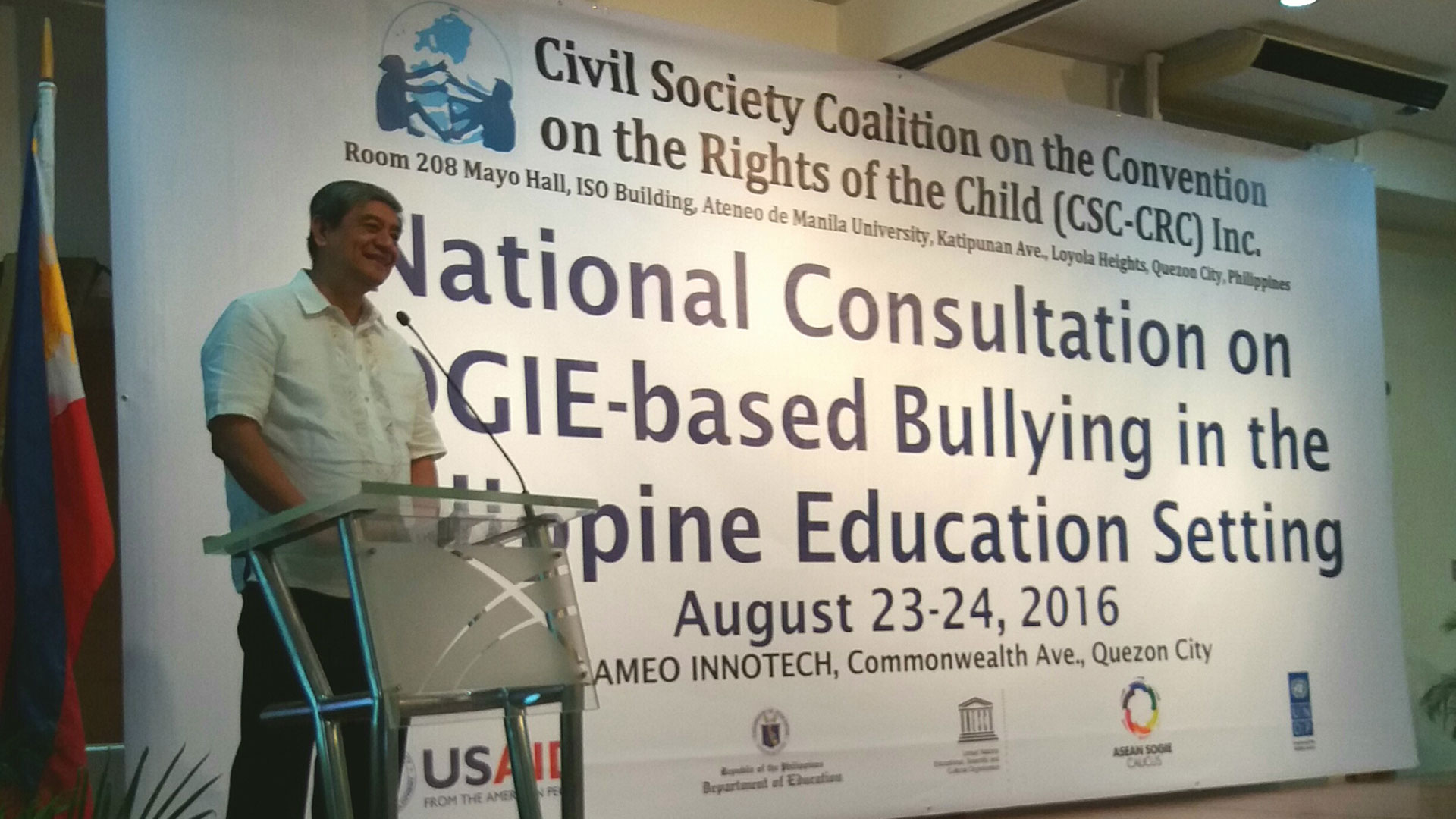
Government, civil society organizations and academics joint forces to address SOGIE-based bullying in schools. All have one common vision, i.e. to make all schools safe for all including LGBTI children and youth.
Recently, the National Consultation on SOGIE-based Bullying in the Philippine Education Setting was held last August 23 to 24, 2016 in Quezon City, Philippines. This event was jointly organized by the Philippine Civil Society Coalition on the Convention on the Rights of the Child (CSC-CRC), United Nations Development Programme (UNDP), United Nations Educational, Scientific and Cultural Organization (UNESCO), Department of Education, ASEAN SOGIE Caucus and TLF Share. Around 80 participants from the government, civil society organisations, private educational institutions, academe and LGBT organisations from all over the Philippines gathered for this two-day national event.
The first day focused on information exchange on the current situation, existing laws, policies and programs of government, civil society and private sector in addressing SOGIE-based school bullying. On the government’s side, Department of Education Undersecretary Albert Muyot presented a collection of the agencies interventions and achievements in addressing the issue at hand. Usec. Muyot emphasized that child protection policy frameworks exists and these can be used as a basis to protect children from SOGIE-based discrimination and violence. On the other hand, Rep. Kaka Bag-ao discussed the salient features of the Anti-Discrimination Bill and requested support from the participants to advocate for the passing of the bill. Ging Cristobal of the QC Pride Council provided a glimpse on how the Quezon City local government crafted its anti-discrimination ordinance and subsequent implementation. Civil society experts from Galang Philippines, ChildFund and TLF-Share Collective presented their current programs in response to the issue. As one of the highlights of the day children were also invited to share their own experiences of SOGIE-based bullying and contribute their own recommendations to the public and private sector.
The second day puts a spotlight on a series of workshops that seek to indentify gaps, challenges, good practices and lessons learned on SOGIE-based bullying. At the end of the day, participants were able to generate input and develop recommendations on policy, legal and regulatory environment on SOGIE-based bullying; awareness-raising and capacity building activities for key stakeholders; support for learners to address SOGIE-based bullying and other SRGBV (school-related gender-based violence) and Institutional Partnerships; research agenda, performance monitoring and documentation of good practices and teacher training, support and school curriculum to eliminate SOGIE-based bullying in the education setting. The end of the national consultation marked the beginning of a nationwide, multi-sectoral commitment on the prevention and elimination of SOGIE-based bullying. The technical working group that will ensure commitments on the elimination of SOGIE-based bullying and other forms of SRGBV are acted upon opened its doors for more members for increased participation.
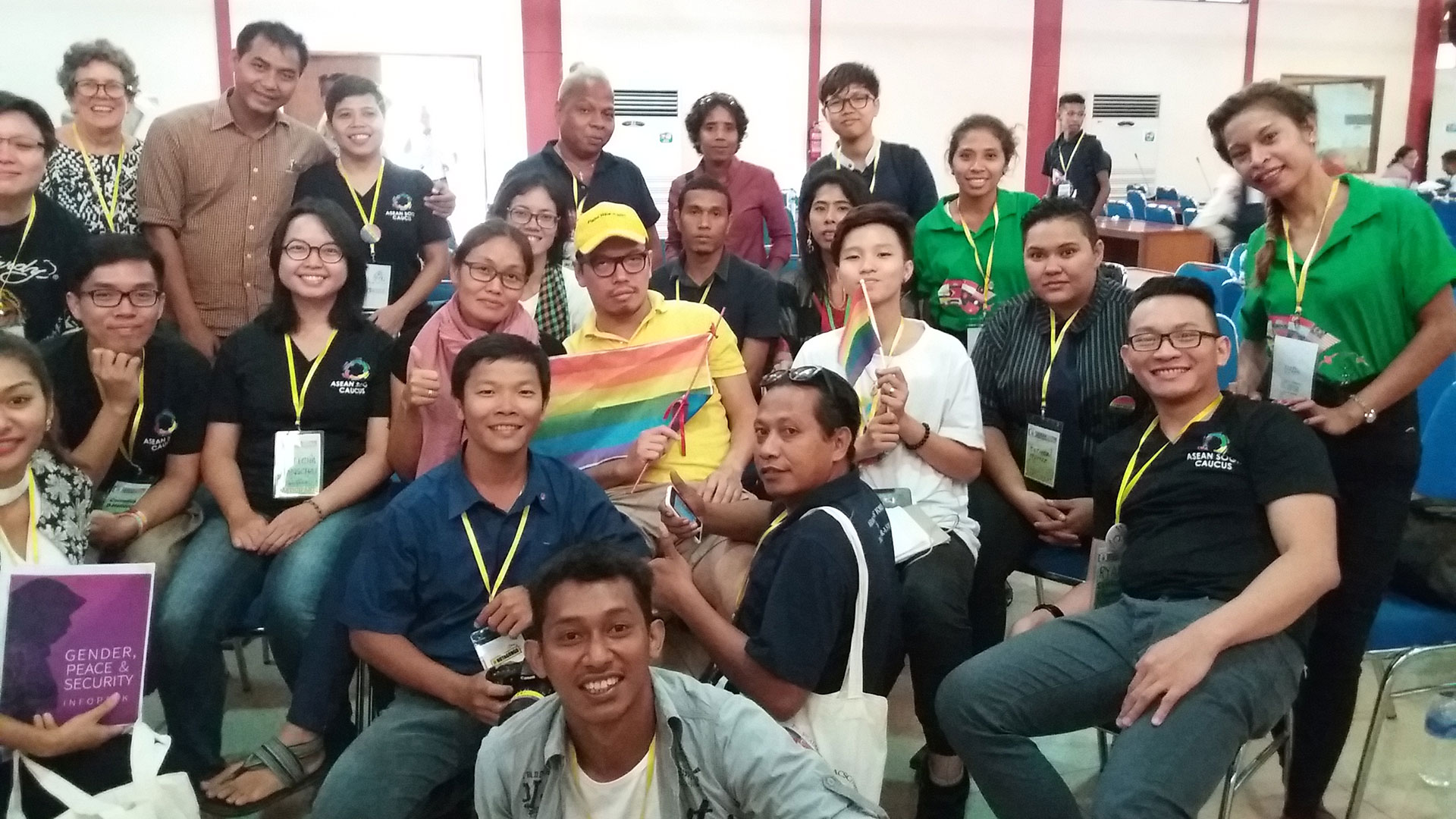
ASEAN SOGIE Caucus (ASC) once again engaged critically with the ASEAN Civil Society Conference/ASEAN People’s Forum (ACSC/APF) 2016. The conference was held from August 2nd to 5th 2016, at the Dili Convention Center, Dili, Timor Leste. It was a remarkable moment because for the first time ASC have established connection and networking with LGBTIQ community and allies in Timor Leste.
Apart from the active participation of ASC members within the drafting committee and program committee to ensure that SOGIE issues are incorporated in the conference, ASC conducted two side events in collaboration with local community and other organizations.
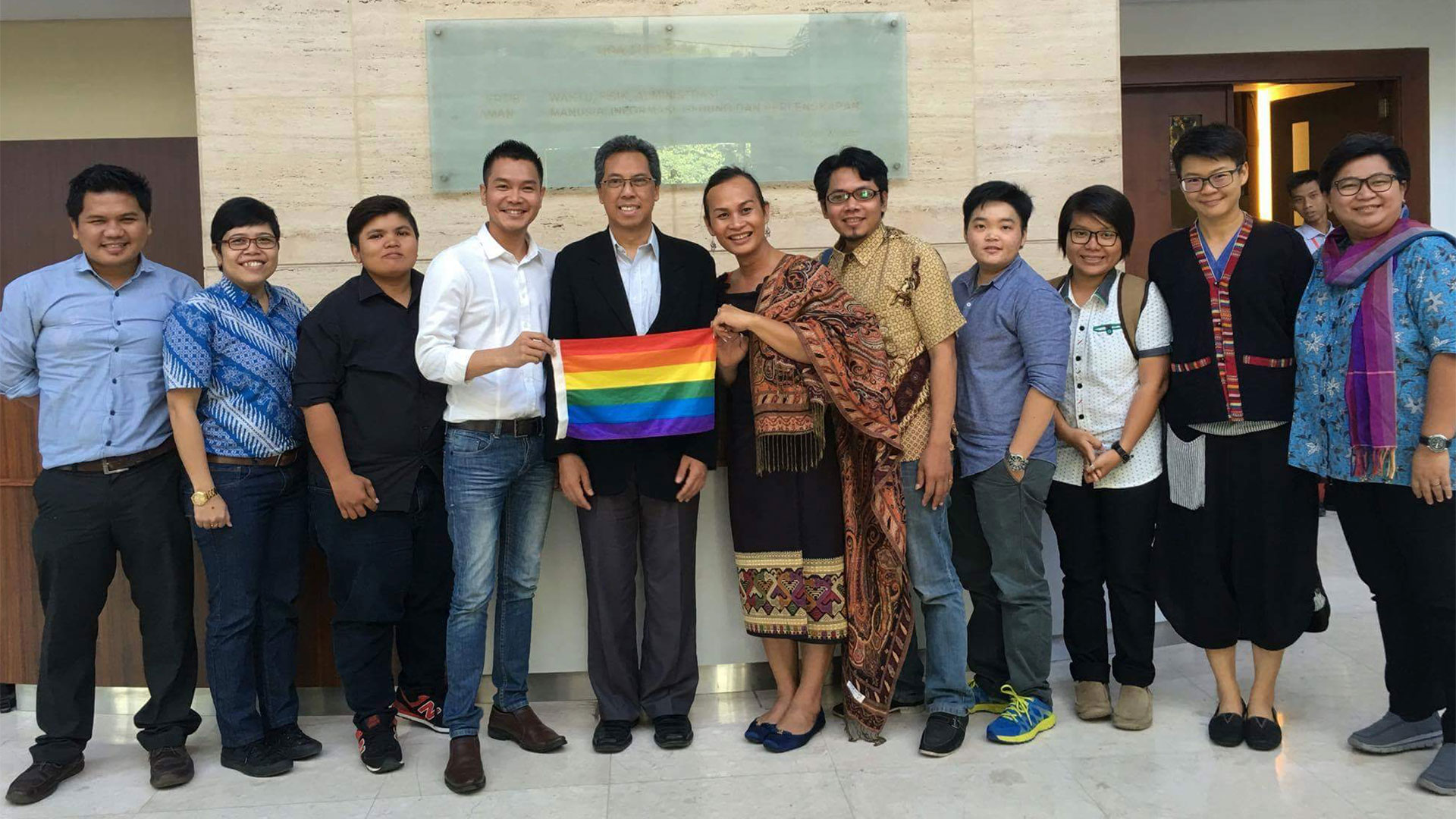
ASEAN SOGIE Caucus together with Human Rights Working Group (HRWG) and Arus Pelangi Indonesia had successfully organized the first ASEAN Advocacy Week on June 17th to 23rd 2016 in Jakarta, Indonesia. The event was successfully held without any hindrance, despite of increasing hostility toward LGBTIQ community in the country.
The event brought together 15 LGBTIQ activists from countries of Southeast Asia to share their experiences and thoughts regarding issues related to LGBTIQ community in the region.
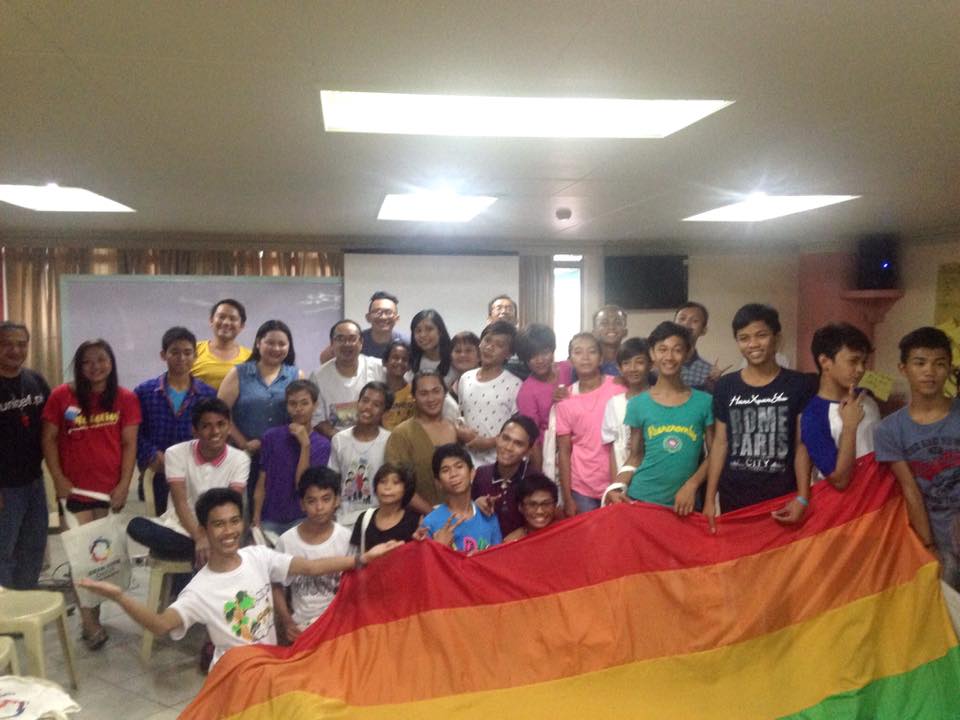
ASEAN SOGIE Caucus took a step forward in promoting Philippine LGBTIQ rights by co-organizing a workshop for LGBTIQ youth with the Philippine Civil Society Coalition on the UN CRC (Convention of the Rights of the Child), World Vision, Plan International, and ChildFund. This event, titled Bata at ang Bahaghari: Children’s Workshop on the Rights of LGBT Youth was held on April 20-21 at the University Hotel, UP Diliman.
The workshop aimed to inform LGBTIQ children of their human rights with regard to Sexual Orientation, Gender Identity, and Expression (SOGIE). While many seminars have been held by the NGO coalition, those events have centered on informing children of their rights in accordance to the CRC. This particular workshop was an initiative by the ASC to coordinate with child rights groups by giving LGBTIQ children a safe space to learn about their rights and speak about their experiences as a member of the LGBTIQ community.
The ASC gathered 23 children, brought to the event by partner child rights organizations. Many of these children have already been to previous child rights workshops by the NGO Coalition, but some stated that this was their first time being to a child rights seminar. When asked, all children stated that it was the first time they’ve attended a seminar focusing of LGBTIQ children’s rights.
The two-day event enabled the children to learn more about SOGIE and how it applies to their everyday life. Ryan Silverio, ASC’s regional coordinator, gave a lecture on basic SOGIE terms: sex, sexual orientation, gender, gender identity, and gender expression. Along with the children’s workshop, adult companions from participating organizations also attended their own lecture on LGBTIQ child rights, led by Ging Cristobal of Outright Action International.
Aside from lectures, participative workshops and focus group discussions were facilitated by Alan Oges along with child rights CSOs. The workshops and FGDs encouraged children to share narratives of their experiences as young LGBTIQs: coming out to their families, classroom bullying, and oppressive language or behavior from people in their local communities. The most common instances of discrimination experienced by the children were monetary extortion from classmates as a form of bullying, verbal oppression by people in their community, and lack of understanding from parents and other family members.
Eric (not his real name), a transgender youth, said in an interview that being honest about his gender identity to his family led to some disagreements that initially caused him to run away from home. His grandmother was against it at first, but after Eric refused to come home for several weeks, his grandmother said that the family will try to understand his identity and expression if only he’d be willing to live with them, again.
Many of the children’s narratives talked about how families were initially against their sexual orientations and gender identities. However, it’s good to know that a good portion of the children also talked about having supportive families. Jericho (not his real name), a youth who identifies as gay, said that his parents accepted him for who he was and, as long as he did well in school and took care of himself, they would continue to support him and his sexual identity.
Jericho’s narrative was one of the better ones in terms of family relations that surfaced in the workshop, but one issue on how children perceived family (and community) acceptance was that they needed to “conform” to societal norms. Lily (not her real name), a transgender youth, said that she would rather dress conservatively in order to adhere to what society considered decent and worthy of respect. Other child participants echoed this sentiment by saying that LGBTIQ children should adjust their behavior according to what their communities perceive as proper and honorable. This perception of policing behavior and gender expression in order to gain other people’s respect is one issue that could be tackled when educating LGBTIQ youth in the future.
The child participants also shared recommendations on how local government units (LGUs) and community institutions can help raise awareness on LGBTIQ youth issues. Here are some of their relevant suggestions:
1. Child and LGBTIQ rights seminars for teachers, parents, and barangay officials.
2. Officials should go house-to-house to check for incidents of abuse.
3. Local Council for the Protection of Children should have provisions that address LGBTIQ children’s needs.
4. Churches should have more LGBTIQ-friendly doctrine, and should allow transgender attendees during mass/service.
5. Local politicians should have more awareness on LGBTIQ rights issues.
The children were very participative during the seminar, and many were pleased to have attended and learned the fundamentals of LGBTIQ rights. Joseph (not his real name), a child participant who identifies as bisexual, said that he would like to work in an LGBTIQ rights organization in the future. He said that coming into the workshop made him realize that there are avenues for him to advocate for the rights of people with his sexual orientation. Mark (not his real name), another youth participant who identified as bisexual, said that he didn’t see a future in LGBTIQ leadership, but he was glad to learn about how he can defend his own rights as an LGBTIQ youth in future endeavors.
The seminar ended with the participating NGOs stating their commitments to the cause of building a safe space for LGBTIQ children in the Philippines. ASC proposed an LGBTIQ child rights alliance which would help sustain an effort toward helping young LGBTIQs in the country. ASC seeks to educate children and adults in the field of child education/care about how they can make their communities and institutions more LGBTIQ child-friendly, and an alliance would help in continuing to organize workshops like Bata at ang Bahaghari in the months to come.

LGBTIQ groups in the Philippines gathered together on Saturday, April 9, 2016 to learn about UN Human Rights mechanisms and how to properly utilize these in advocacy work. Led by ASEAN SOGIE Caucus, Outright Action International, and Rainbow Rights Project, the event titled Consolidating LGBTIQ Rights Documentation Toward Effective UN Policy aimed to educate CSOs on how to draft and engage in the three UN review processes: CEDAW, Universal Periodic Review, and ICCPR.
Taking part in human rights mechanisms is very important in local and international activism. During the session primer, Ging Cristobal of Outright Action International shared that all UN bodies can be engaged with, and that it’s necessary to learn the function of each to make it work with your particular advocacy. Moreover, the Philippines is again part of the Human Rights Council for the 3-year cycle of 2015-2018. This is the prime period for CSOs to take advantage of the country’s seat in the Working Group and include national LGBTIQ rights concerns in the HRC cycle’s agenda.
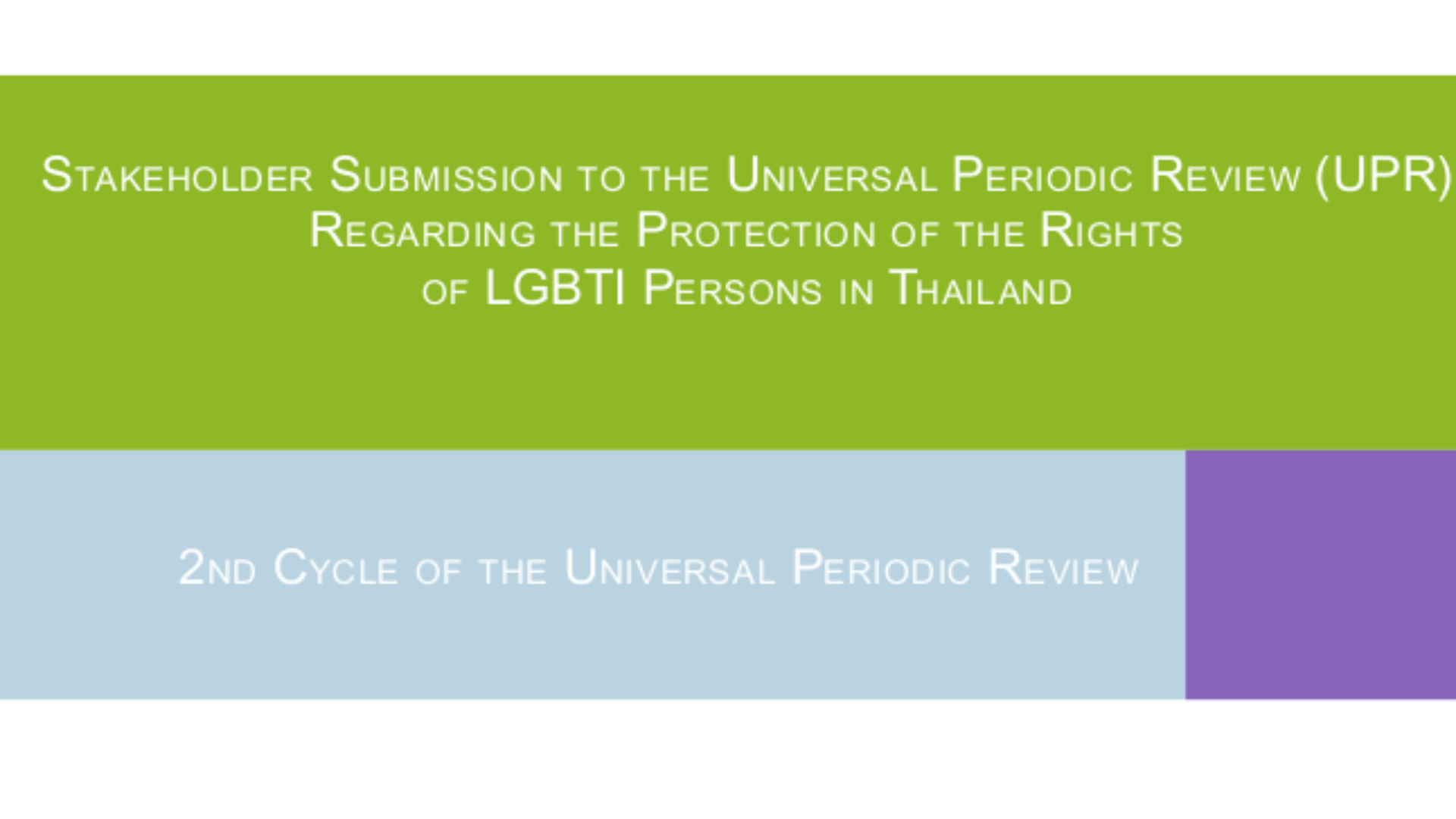
Thailand pushes for equal rights in the 2nd Cycle of the Universal Periodic Review. LGBTIQ groups in Thailand, led by the Togetherness for Equality and Action Group (TEA Group) have submitted a UPR report detailing the lack of specific provisions in national law that would help LGBTIQs gain a more participative, non-discriminatory position in the Thai community.
The submitted UPR report includes 7 areas of concern: Employment, Health, Family, Intersectionality, School and Education, Media and Publications, and Human Rights Defenders (HRDs). The running theme of the report is to ensure non-discrimination on the basis of sexual orientation, gender identity and expression, and sex characteristics (SOGIESC). The analysis and recommendations submitted by Thai LGBTIQ groups are included in this post for further reference and awareness-building.

Twelve transgender women were arrested and detained this Wednesday, March 2, 2016 at Chulia Street, Penang. The women were put under investigation for various charges, five people being held under investigation for gang robbery, and the other six being charged with violation of Section 28 of the 1996 Syariah Criminal Enactment (wherein biological males are prohibited from dressing up with feminine clothing). The last of the women is from Indonesia, and is charged with the violation of her Social Visit pass.
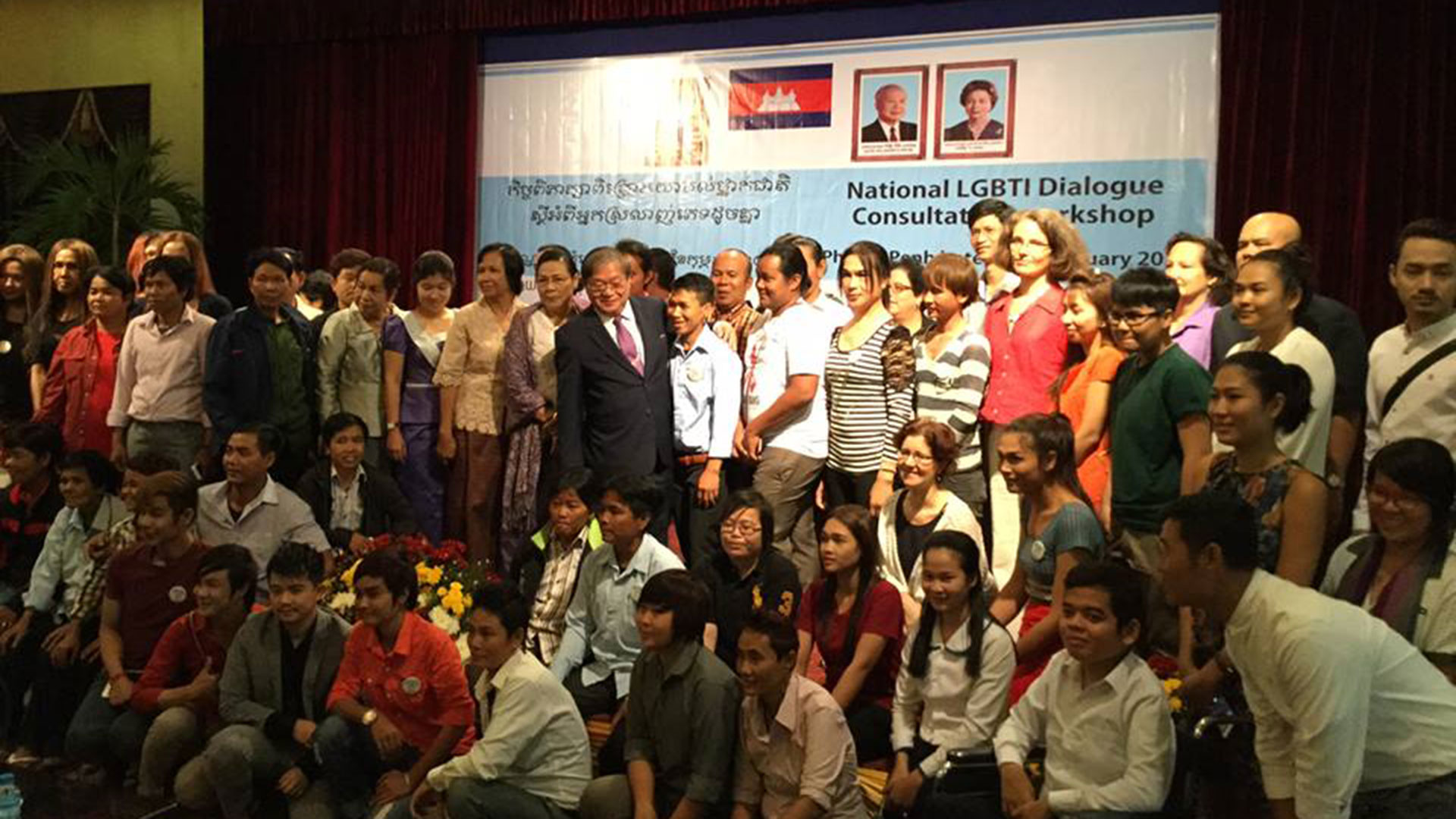
A regional milestone on the promotion of LGBTIQ rights is being achieved this February 16 in Phnom Penh, Cambodia. CamASEAN, with support from other LGBTIQ and human rights organizations such as UN Women, Asia Pacific Transgender Network, and ASEAN SOGIE Caucus, is holding a national dialogue to help make transgender rights visible in policies and local discourse.